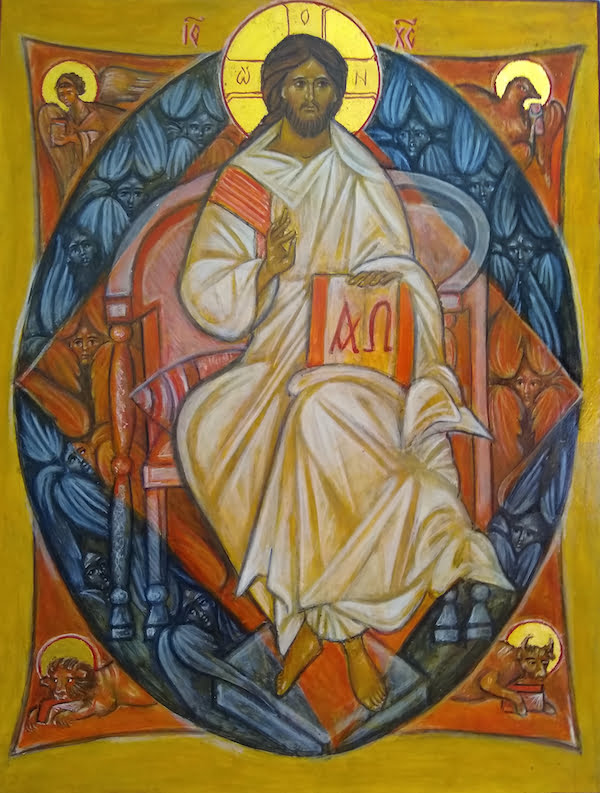I was very moved by a short essay from Fr. Romano Guardini written in 1945. The title of the essay is “Finding One’s Center”. In the longing to find our deep and true Center we meet our woundedness. Guardini in this essay is very transparent as he describes his struggle with depression and scrupulosity. Here is what he says: “I was always anxious and very scrupulous…. Added to this condition for me was the tendency toward depression which later on became acute. Nevertheless, this tendency was also a source of creativity for me” (Essential Writings, p.49). Here is the paradox: on the one hand the struggle with anxiety, scrupulosity, and depression and on the other hand this struggle for Guardini became a source of creativity and depth. He takes up his cross and follows his Master and Teacher.
Today is the solemnity of Christ the King. At the heart of this liturgical celebration is a paradox, is it not? At vigil I was struck by a phrase from the reading for this feast. Pope Benedict XVI said, “the Cross is a throne” (Angelus, 11/26/2006). Is this not profound? The Cross of Jesus has become a throne of glory, the glory of God. And for us, our cross becomes a throne of grace as we carry it and follow Jesus. Pope Benedict added: “The whole of Jesus’ life reveals that God is love.” We each know that there is no ‘cheap grace’ and this love always asks something from us. And the first thing it does ask is very simple: to “freely accept” the One who is God’s Love and Truth. Pope Benedict says that Love nor Truth never impose, “they come knocking at the doors of the heart and mind and where they can enter, they bring peace and joy.” Our ever-present cross is with us and also is the presence of God’s love and truth, which are knocking at the door of our heart and mind.
Here is another view into the Guardini’s cross: “Since birth, I have borne the inheritance of the depression that my mother experienced. Such an inheritance is not in itself bad; it is the ballast that gives a ship its ability to travel the deep seas” (p.49). A ballast gives stability to the ship as it treads deep waters. Bearing or carrying our cross gives stability and direction for our lives. It enables us to tread deep waters where we encounter the life and truth of God. Guardini continues: “I do not believe that there is creativity and a deep relationship to life without having a disposition toward depression. A person cannot eliminate it but must include it in his or her life. As part of this, one must accept it in an innermost way from God and must try to transform it into a good for other people” (p.49-50). The Cross of Christ has become the throne of glory. The centrality of Christ in our lives is revealed as we carry our cross with grace. And we find our center in Christ every time we take up our cross.
Finally, Guardini wrote: “I cannot say that my anxiety totally disappeared. Since it is really part of my very makeup, it always runs as a possibility beneath the surface of my life. I have attained, however, a critical distance from it and now am able to distinguish among its demands and assess each of them” (p.52). To recognize and take distance from depression and anxiety helps us to discern its impact on our lives so that it does not overpower or rule our lives. Accepting ‘in an innermost way from God’ our cross will lead us to our center and into the centrality of Christ’s life.
Sr. Kathy DeVico, Abbess
Chapter Talk – Christ the King – November 24, 2024, cycle-B


